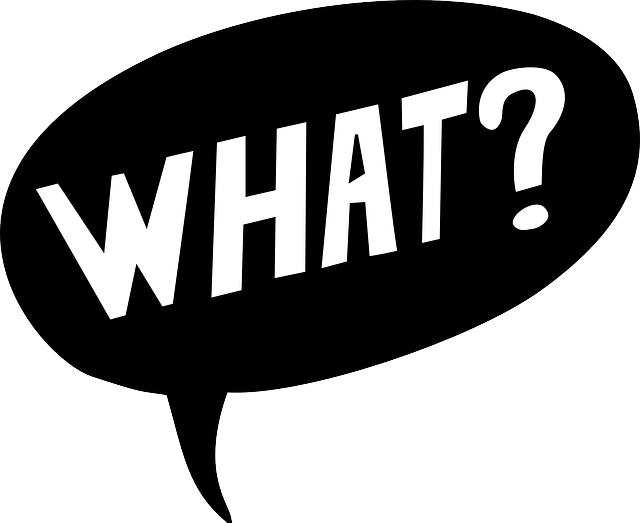Business insurance is a comprehensive safety net for companies, protecting them from various financial risks including property damage, liability claims, and business interruption. Key coverage areas include physical asset protection against perils, liability for accidents or harm to others, and compensation during operational setbacks caused by covered events. Understanding these aspects of what does business insurance cover is crucial for entrepreneurs to safeguard investments and ensure uninterrupted business continuity. Comprehensive policies cater to diverse scenarios, from natural disasters and property damage to professional negligence and worker's compensation, enabling businesses to manage risks effectively and maintain peace of mind.
“Business insurance is a cornerstone of financial protection for any enterprise, safeguarding against unforeseen events that can disrupt or damage operations. This comprehensive guide delves into the various aspects of business insurance, particularly focusing on property and liability coverage. Understanding what does business insurance cover is essential for every business owner.
From protecting physical assets through property insurance to shielding against legal claims with liability coverage, this article explores critical components such as common property damage causes, business interruption mitigation, professional liability, commercial auto insurance, and worker’s compensation.”
Understanding Business Insurance: A Comprehensive Overview

Business insurance is a safety net that protects your company from financial loss due to unforeseen events. It’s not just about shielding against physical damage; it encompasses a wide range of risks, including liability claims, property damage, and even business interruption. Understanding what business insurance covers is crucial for any entrepreneur aiming to safeguard their investment and ensure continuity.
When we talk about what does business insurance cover, the answer lies in several key areas. For property insurance, it protects buildings, inventory, equipment, and other assets from risks like fire, theft, vandalism, or natural disasters. Liability insurance, on the other hand, shields businesses from financial liability arising from accidents, injuries, or harm caused to third parties. This includes legal fees, medical expenses, and potential damage awards. Additionally, business interruption insurance provides compensation during periods when operations are halted due to covered events, ensuring your company can meet its financial obligations while recovery takes place.
Property Insurance: Protecting Your Physical Assets

Business insurance is a safety net that protects against unforeseen events, and property insurance is a critical component for any business owner. It shields your physical assets—from buildings to equipment—against damage or destruction due to perils like fire, theft, vandalism, extreme weather conditions, or natural disasters. This coverage ensures you can replace or repair these assets without incurring significant financial strain.
Understanding what does business insurance cover is essential for risk management. Property insurance policies typically include replacement costs for physical structures and equipment, as well as extra expenses incurred due to business interruption during repairs. By insuring your property, you gain peace of mind knowing that unexpected events won’t cripple your business operations or leave you vulnerable financially.
Liability Coverage: Shielding Against Legal Claims

Liability coverage is a critical component of business insurance, designed to protect against potential legal claims and financial losses. It shields businesses from expenses arising from accidents, injuries, or harm caused to third parties on their premises. This includes medical bills, legal fees, and any damages awarded by a court. For instance, if a customer slips and falls in your store, liability coverage can help cover the costs associated with their medical treatment and potential lawsuit.
Understanding what does business insurance cover in terms of liability is essential for any entrepreneur. It ensures that if your business faces unexpected legal challenges, you have financial safeguards in place to mitigate significant losses. By purchasing adequate liability coverage, businesses can maintain peace of mind, knowing they are prepared for unforeseen circumstances that could impact their financial health.
Common Types of Property Damage and Their Causes

Property damage can take various forms, and understanding these different types is essential when considering what does business insurance cover. Common causes include natural disasters such as fires, floods, and storms, which can wreak havoc on commercial properties. For instance, a sudden fire could lead to extensive smoke and water damage, requiring significant repairs or even replacement of valuable equipment and inventory.
Other types of property damage result from human actions, like accidents, vandalism, or construction errors. Accidental spills or leaks can cause moisture-related damage, while deliberate acts of vandalism might target specific assets or the entire facility. Construction blunders, such as incorrect structural support or water penetration through poorly sealed areas, can lead to long-term issues, necessitating costly remediation measures that are typically covered by business insurance policies.
Business Interruption: How to Mitigate and Claim

Business interruption is a common risk that can have devastating effects on operations and finances. What does business insurance cover in such scenarios? Fortunately, many comprehensive property and liability policies include coverage for business interruption. This protection kicks in when a covered event, like a natural disaster or equipment failure, stops your business from operating normally.
To mitigate the impact of potential interruptions, businesses should have contingency plans in place. Regular backups of data, alternative work spaces, and supply chain diversification can help minimize downtime. When an interruption occurs, swift action is crucial. Notify your insurance provider promptly to initiate the claims process. Keep detailed records of expenses incurred during the closure, as these will be considered in the claim settlement.
Professional Liability: Safeguarding Your Expertise

Professional Liability, also known as Errors and Omissions (E&O) insurance, is a crucial component of business insurance for any company offering professional services. It protects against claims arising from negligence or mistakes made in the course of providing expert advice or completing tasks. This coverage ensures that your business can withstand legal challenges related to professional errors, which could otherwise result in significant financial losses and damage to your reputation.
When considering what does business insurance cover, understand that Professional Liability shields you from lawsuits and settles claims for damages your negligence causes to clients. It applies to a wide range of businesses, including consultants, accountants, lawyers, and healthcare providers. By having this type of insurance, you demonstrate a commitment to upholding the highest standards of professionalism and client satisfaction.
Commercial Auto Insurance: Insuring Your Fleet

Commercial Auto Insurance is a crucial component of any business’s comprehensive risk management strategy, especially for companies with a fleet of vehicles. This specialized coverage protects against significant financial losses resulting from accidents or other incidents involving your commercial vehicles. Understanding what business insurance covers in this regard is essential when safeguarding your assets and ensuring operational continuity.
When you insure your fleet through a robust commercial auto policy, you’re not just covering the cost of repairs or legal fees after an accident. It also provides liability protection, shielding your business from claims arising from injuries sustained by others or damage to their property. This is vital for maintaining a positive public image and avoiding financial strain caused by unexpected incidents involving your company vehicles.
Worker's Compensation: A Legal Requirement and Benefit

Worker’s Compensation is a legal requirement for most businesses and is an essential component of any comprehensive business insurance policy. It provides financial protection to employees who are injured or become ill while on the job. This benefit ensures that medical expenses, rehabilitation costs, and even lost wages are covered, offering crucial support to workers in their time of need.
By having Worker’s Compensation insurance, businesses demonstrate their commitment to employee welfare and compliance with legal standards. It serves as a safety net for both employers and employees, fostering a safer work environment and promoting peace of mind. Understanding what business insurance covers, including this vital aspect, is key to managing risks effectively and ensuring the long-term success and sustainability of any organization.
Choosing the Right Policy: Factors to Consider for Your Business

When selecting a business insurance policy, understanding what does business insurance cover is crucial. The right coverage will protect your assets and shield your business from financial loss due to unforeseen events like property damage, liability claims, or legal disputes. Start by evaluating your business needs and risk profile. Consider factors such as the type of industry you’re in, the size and value of your physical assets, potential hazards specific to your operations, and historical claims experience.
Additionally, reflect on your legal obligations and customer expectations. Different businesses face unique risks—for example, a construction company may require more comprehensive property coverage than a retail store. Moreover, ensure that your policy includes liability protection to safeguard against lawsuits and medical expenses arising from accidents or injuries on your premises. Regularly reviewing and adjusting your coverage as your business grows is essential to maintain adequate protection.
